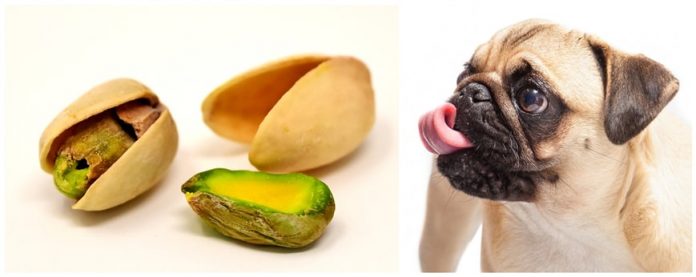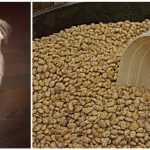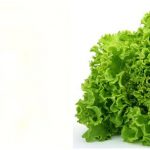Pistachios are among the best-tasting nuts. Their rich and creamy texture combined with their earthy notes makes them a perfect addition to cakes and salads. And who would say no to a pistachio-flavored ice cream? Without a doubt, these nuts are hard to resist.
Well, it’s not just humans who seem to delight in the unbelievably pleasing taste of pistachios. Most dogs can’t help but taste them, too. But before saying yes to your furry little friend, is it okay to share pistachios with dogs in the first place?
Can Dogs Have Pistachios?
There is a belief that pistachios are poisonous to dogs and even to humans to a certain degree. The truth is that they can only be toxic if ingested raw or fresh from the tree. The pistachios you bought from the grocery or specialty stores online have already undergone roasting.
Therefore, the toxic substance or the poison ivy on the nut itself has already been destroyed. Now that we learned that pistachios are not really poisonous to dogs, does it mean we can share them with our pets without worrying that they might cause an ill effect?
The answer is still no. The store-bought pistachios are not deadly to dogs, but it does not mean they should be shared with our pets either. In their raw form, these nuts are loaded with fiber containing as much as 13 grams per serving.
Can Pistachios Cause Pancreatitis in Canines?
Pistachios can cause pancreatitis or inflamed pancreas in dogs if they often eat these nuts as a snack because they contain high amounts of fat. So it’s better to avoid pistachios as much as possible. Pet owners should be strict in saying no to their pets rather than putting a dog’s life at risk by sharing a food high in fat.
Most of the pistachios available in grocery stores have already been roasted and we all know the roasted ones may contain lots of salt. Roasted pistachios seasoned with salt also contain high amounts of sodium. One serving can have as much as 121 milligrams of sodium. For dogs, this is way too much and can already cause poisoning if they do not have immediate access to water.
A cup of pistachios has more than 56 grams of fat. This is more than twice the maximum allowed quantity of fat for a large dog per day. According to the nutritional requirements for canines, a 30-pound dog can only have 14 grams of fat per day. If your pet weighs 60 lbs., he can only have a maximum of weeeee28 grams of fat daily.
How about those salt-free pistachios? A cup of pistachios without any salt added has 26 grams of fat, still too high for an adult dog. This is quite a lot for younger dogs, so better avoid these nuts as much as possible for your pups.
What To Do If a Dog Shows Signs of Pancreatitis?
Did you know that fatty foods trigger acute pancreatitis in dogs? Acute pancreatitis is one of the two forms of this disease. With this condition, there is little or no permanent pathologic difference to the inflammation in the pancreas. The other one, the chronic type, is continuous and often comes with unalterable changes.
Experts have not yet discovered the exact causes of this disease, but one thing is for sure: consuming fatty foods is the number one culprit for this condition. Some dogs can suffer from mild inflammation while others may experience worse symptoms of the disease.
How will you know if your dog has pancreatitis? You might want to observe your pet’s behavior before jumping to a conclusion. If he often lowers his head onto the floor with his rear end in the air, as if he is praying, it’s possible that pancreatitis is striking. In advanced stages, it causes dogs to experience acute shock and even intense depression.
The majority of canines with pancreatitis also suffer from dehydration and anorexia or loss of appetite. Keep an eye on your pet at all times. If he’s usually energetic but suddenly became lethargic and does not want to eat anything, chances are he is not feeling well. This is the time to seek your vet’s help.
Dogs with pancreatitis or prone to having it should eat a low-fat diet. This means no fatty nuts like pistachio at all. A veterinarian may also suggest avoiding dry food. Dogs with this kind of condition are usually given small and frequent meals because it will be more difficult for the pancreas to process a big meal in one sitting.
If you suspect that your dog has pancreatitis, it’s best to bring him to an animal clinic to have him checked. Acute pancreatitis can be diagnosed through a series of examinations. Aside from asking about your pet’s medical history and looking for clinical signs, the vet may also perform ultrasonography and radiography.
While you are waiting for the results of the exams, avoid giving any food that can trigger the condition. Stick to a low-fat, high-protein diet and only feed your dog small and frequent meals in a day. A good example of a meal is skinless chicken breast. A serving of boiled hamburger meat will also do. Avoid giving one large meal, especially dry foods, because they are putting your pet at risk for pancreatitis.
What to Do If Your Pet Accidentally Ate Pistachios
In case your pooch gobbled down some pistachios without your permission, keep an eye for symptoms like throwing up and having loose stools. If these symptoms last for more than 24 hours, don’t hesitate to call your vet ASAP.
Your vet may recommend Pepto-Bismol which can help soothe your dog’s aching stomach. This medicine can be bought over the counter and is relatively safe for dogs. Do note, however, that Pepto-Bismol should not be administered to dogs that are sensitive to aspirin. It is also not recommended for canines that suffered from gastrointestinal ulcers in the past or are currently experiencing bleeding issues.
Withholding food for 24 hours is also another effective remedy for dogs with gastrointestinal issues. It’s applicable for adult dogs only and not for puppies. If you have a young dog with an upset stomach, give him small meals that are easy to digest. Vets recommend giving a bland diet which will not be hard on your pet’s stomach.
While fasting, ensure that your pet has access to clean and fresh water. Always refill his bowl so your dog will not be dehydrated throughout the 24-hour period. In case your pet refuses to drink, try to offer him an ice cube that he can lick.
How about pistachio-flavored ice creams? They are also not suitable for dogs, especially for those who are sensitive to dairy products. This thick and creamy dessert contains whole milk and heavy cream that can upset a dog’s stomach. A recipe of pistachio ice cream will not be complete without sugar. While sugar is fine for dogs in small amounts, it can be very bad for them in high quantities.
Other Risks of Feeding Pistachios to Dogs
If your dog accidentally ate shelled pistachios, he will suffer from gastrointestinal upset depending on the quantity he ate. If your pet is lucky enough, the nuts will pass and he will surely be fine. Otherwise, you may need to see the vet to have him checked if he has been suffering from diarrhea and vomiting for more than a day.
The shells of pistachios are quite hard and your pet’s digestive tract cannot digest them. In case your pet happened to eat both the nuts and the shells of the pistachios, watch out for symptoms of stomach upset. A common indication is diarrhea or having loose stools. This is usually associated with vomiting and apparent pain in the abdominal area.
Another possible risk is mold poisoning. Mold usually occurs on salted nuts that were not prepared or stored accordingly. It’s highly recommended to soak and rinse them properly to make sure they will not get mycotoxins.
Mycotoxins or moldy food can be dangerous for dogs as well as humans. Sadly, this is very common in dogs since most of them have the habit of raiding the trash or eating leftovers. This is characterized by vomiting associated with fever and tremors. It is something you should not neglect because it can cause seizures in dogs when left untreated and can even cause death.
It is possible for these nuts to develop Aspergillus mold. This type of mold can produce aflatoxin, a family of toxins usually found in agricultural products like nuts. When exposed to this fungi-producing substance, your pet could suffer from poisoning. As we all know, all types of poisoning can be fatal to dogs.
Aflatoxin poisoning due to the Aspergillus mold in pistachios is characterized by jaundice. Also called icterus, this refers to the yellow discoloration of the mucus membrane in a dog’s gums and nostrils. An ill dog will also look lethargic and will throw up. He will also display a lack of interest in any food you serve him.
To avoid these kinds of problems, just avoid pistachios at all costs. This is very important, especially if your pet has a sensitive tummy. Although our pets share many similar characteristics with us, they are still animals that often have a difficult time processing the foods we normally eat.
Are Pistachios Beneficial to Dogs?
Pistachios may be good for you, but not for your pet. In humans, pistachios can be a healthy addition to one’s diet because they are loaded with nutrients. They can also fight many types of diseases since they are a natural source of antioxidants. On top of that, they can help in losing weight so it is a great snack for people who want to shed the extra pounds.
However, our dogs’ digestive systems don’t work the same way as ours. Instead of helping them lose weight, pistachios can even cause obesity in dogs if they eat it repeatedly. When tempted to share, don’t forget that there are other nuts that are safer for dogs.
On a practical note, pistachios are very expensive so it may cost you a lot to buy a bag of these nuts for your pet. If you want a safer alternative that is more economical, consider peanuts, cashews, and hazelnuts. Sunflower seeds are also safe for dogs, as long as you give it to them in small amounts.
Peanuts are the most common nuts given to dogs. In fact, a lot of dogs delight in this nut and even in peanut butter. Peanuts are dog-friendly as long as they no longer have the shells. While they are safe for dogs, they should only be given once in a while. Cashews and hazelnuts, like peanuts, are considered good for occasional treats because they can cause abdominal pain in excessive quantities.
The Bottom Line
Be careful when it comes to giving nuts to dogs, particularly those that contain high amounts of fat. Unfortunately, pistachios are among the nuts considered as off-limits to dogs. The high-fat content of pistachios can cause gastrointestinal upset and pancreatitis in dogs. Some dogs could even suffer from obesity from consuming high-fat nuts like pistachios.
There are healthy snacks out there that are safer to dogs. When eating pistachios, also make sure your pet will not have access to the shells. Your dog could munch on them and suffer from stomach upset because pistachio shells cannot be digested inside your dog’s gut.






















